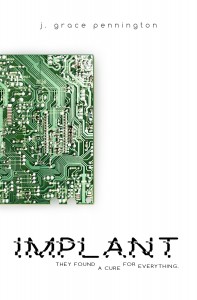 Veronica Roth, author of the popular YA Divergent series, defines dystopia as a utopia gone wrong. In her series, mankind has divided into particular factions, each trying to combat the negative ideal that they think is causing society to crumble. But things go wrong when the factions begin to corrupt in a fight for power.
Veronica Roth, author of the popular YA Divergent series, defines dystopia as a utopia gone wrong. In her series, mankind has divided into particular factions, each trying to combat the negative ideal that they think is causing society to crumble. But things go wrong when the factions begin to corrupt in a fight for power.
Similarly, in The Giver, mankind has tried to eliminate all distinctions to get rid of jealousy or bigotry, and terminates those who take more than they can give. In The Hunger Games the Capitol is a stunning vision of extraordinary wealth and prosperity. In 1984 Big Brother keeps society running as smoothly as a well-oiled machine. In Uglies everyone has a chance to be beautiful. In my new book Implant, a cure has been discovered for almost every physical ailment that exists.
But something always goes wrong.
How quickly order turns to tyranny, prosperity to selfishness, beauty to emptiness.
Dystopias are trendy at the moment, but they aren’t new. Brave new worlds that aren’t what they seem have been the subject of fictional ponderings for over a hundred years. Utopias, however, when they exist at all, tend to be either satirical, or they eventually crumble. Even one of the best-beloved utopian societies, Star Trek’s United Federation of Planets was never free from corruption, greed, and injustice. Why? If we like happy endings, why do utopian societies leave us with a sense of dissatisfaction or skepticism?
It is fitting that the very word “dystopia” was coined in response to the word “utopia.” Because in a true-to-life story, the utopia always comes first. Rarely, if ever, do people wake up saying “I think I’d like to create a dystopian, post-apocalyptic society.” We are creatures of conscience, so we are driven to justify ourselves morally. We put ourselves to bettering the world, bringing peace, creating beauty, curing cancer. But we’re human. We’re prideful. We’re selfish. We’re stubborn, and prejudiced, and vengeful. And power corrupts, not because power is evil, but because power exposes what is in our hearts.
We see the slow fade to devastating corruption in these stories, and we see ourselves. They serve as warnings, blatant sometimes, but still compelling in their honesty. That honesty is the main reason a genre that many consider depressing lives on through the decades.
And as long as there is greed in our hearts, and the potential for corruption of the good, pure and lovely, it will live on.
About the Author
 J. Grace Pennington has been reading stories as long as she can remember, and writing them almost as long. She is also a prolific medical transcriptionist, amateur musician, chocolate eater, daughter, sister, friend, and laundry folder. You can learn more about her writing on her website, www.jgracepennington.com, or by following her on Facebook or Twitter. Her dystopian YA novel Implant will be available on Amazon.com August 15th.
J. Grace Pennington has been reading stories as long as she can remember, and writing them almost as long. She is also a prolific medical transcriptionist, amateur musician, chocolate eater, daughter, sister, friend, and laundry folder. You can learn more about her writing on her website, www.jgracepennington.com, or by following her on Facebook or Twitter. Her dystopian YA novel Implant will be available on Amazon.com August 15th.
Pingback: Utopia Comes First | J. Grace Pennington